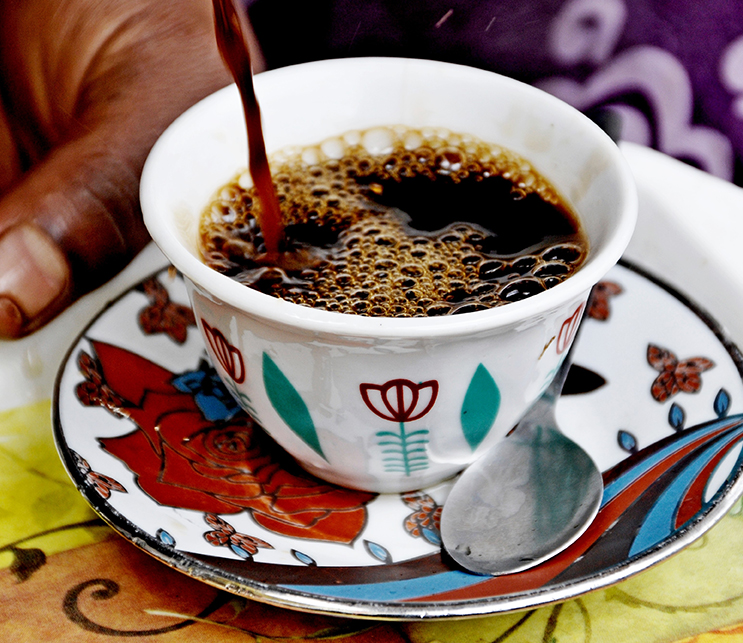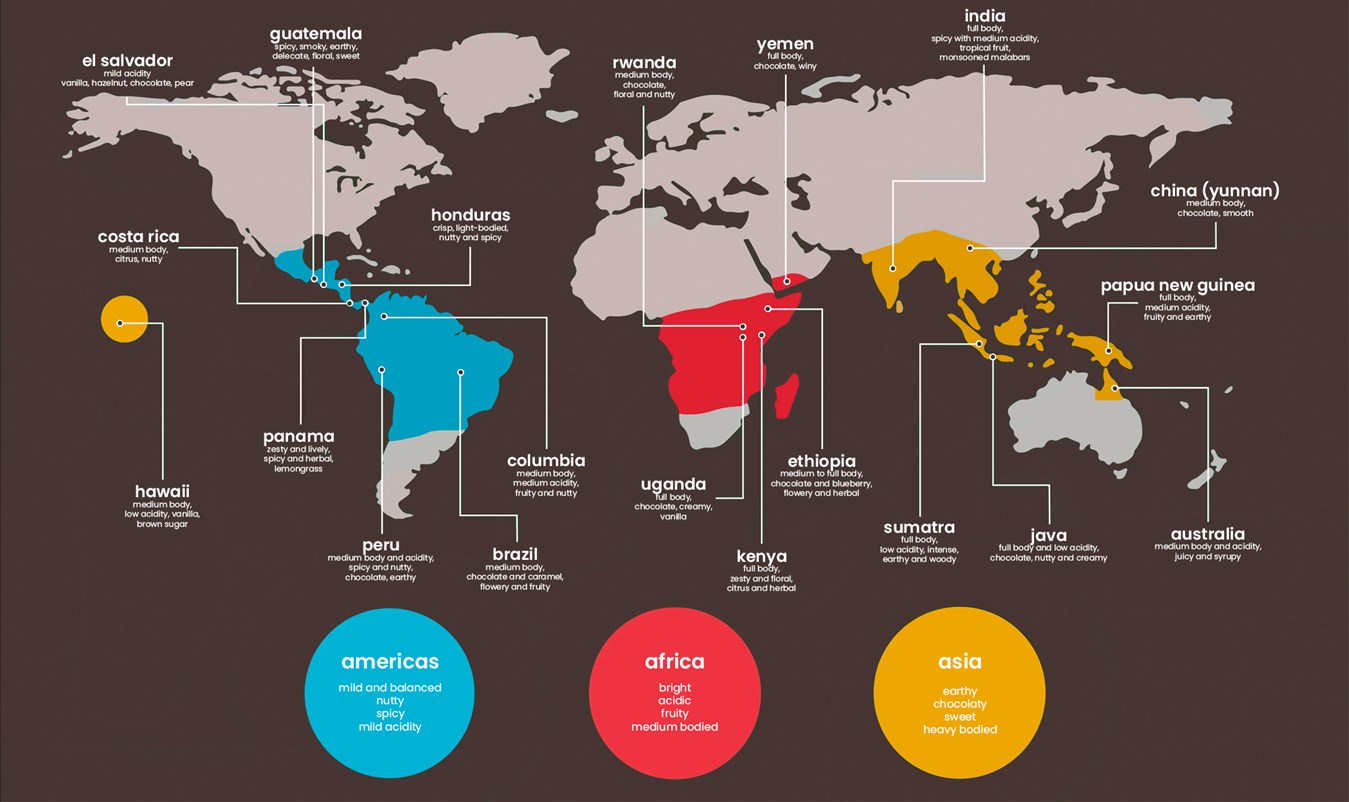Ethiopian – Burka Gudina Farm Estate

The Coffee
Ethiopia is fast becoming one of the world's most important coffee-growing regions and is known for its exceptionally well-balanced coffee with blueberry flavour overtones.
It has a medium body with acidity to balance it out, a creamy, silky crema with cranberry and caramel notes. Then comes a long-lasting, rich blueberry flavour that never gets old.
Ethiopia is sometimes known as the birthplace of coffee. For centuries, coffee trees have flourished in the wild here.
The environment is ideal for making delicious coffee, and Ethiopia is home to over a thousand different coffee varieties.
The southern mountainous region's high heights provide ideal growing conditions.
The Flavour
Ethiopian coffee is well-known for its medium acidity and body.
Your first sip will hit you with subtle fruity notes of Cranberry, sweet caramel overtones, and a unique and wonderful Blueberry aftertaste.
Fruity, sweet, and creamy with luscious caramel undertones, a must-have for sophisticated coffee lovers worldwide.

The History
Ethiopia is often referred to as coffee's origin, renowned for its high-quality coffee beans. In addition, it yields some of the world's top single-origin coffees.
According to Ethiopian legend, circa 850 AD, an Ethiopian goat herder named Kaldi found coffee and its miraculous properties.
According to legend, he noticed his goats devouring the coffee fruit from the trees and acting crazily. He was so taken with these "miracle" beans that he brought them home.
When Kaldi demonstrated their benefits to a monk, he flung the beans into the fire, declaring that this magical phenomenon was the product of the devil.
The name Kaffa was derived from the southwest region of Ethiopia, where coffee was discovered in the wild. As a result, coffee trees grow naturally here, unlike in virtually every coffee-growing country.
The soil is rich in nutrients, and the flora is lush. The majority of coffees are produced in the shade and among other plants without the use of agrochemicals. On the other hand, coffee growers in other parts of the world must plant specialised types of coffee and establish ideal conditions, such as adding more trees to give shade to the small coffee trees.

The Region
Everything is done by hand on the picturesque Burka Gudina Farm, tucked in the deep fertile soil of the region of Limu, as it has been for generations. Shade-grown coffee brings out the rich blueberry flavour for which this coffee is renowned.
Over half of the trees on the farm are acacias, with the remainder being a mix of other indigenous forest species such as Sudan teak and African teak. In addition, the plantation owner plants well-selected native varieties of coffee that thrive at high altitudes and are disease resistant in the shadow of this magnificent forest.
The plantation owner has built a strong team of 70 farmers and managers over the past 19 years, and the farm functions like a well-oiled machine.
What the Future Holds for Burka Gudina
Burka Gudina is currently a well-known farm. They are concentrating their efforts on certification (the farm is certified Organic, UTZ, RFA, and Café Practice) and finding new clients for their grade-one coffee. In addition, farm owners are working to install a colour sorter in Addis Ababa to optimise the grading of this unique coffee.
Employees on the ground are focused on increasing farm produce while maintaining high-quality beans and preserving the environment. "What we have in our hands is the collective wealth of everyone on the planet," adds owner Ibrahim. Our responsibility is to pass it on to the next generation in pristine condition. As a result, our coffee will be enjoyed for decades to come."
Wise words indeed.
